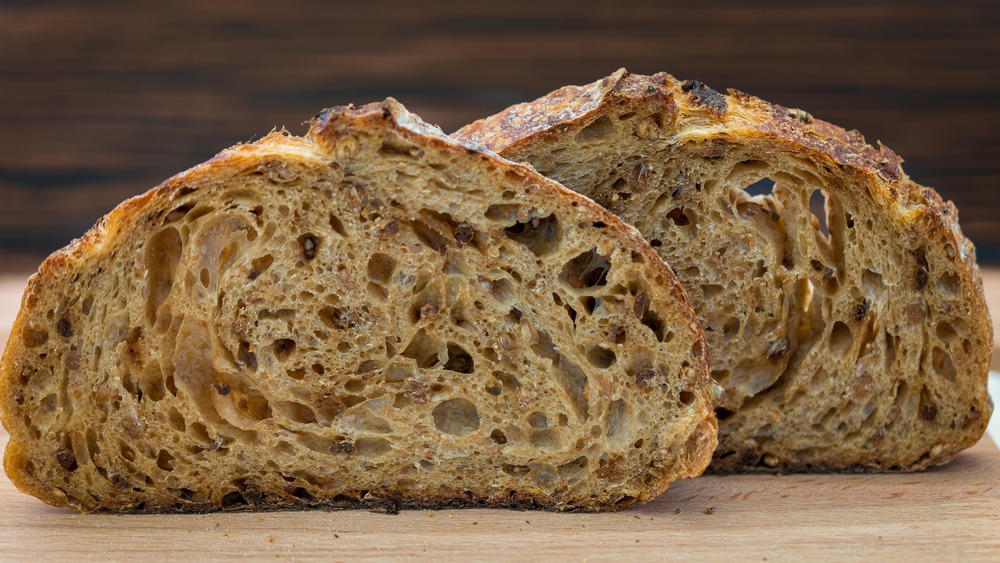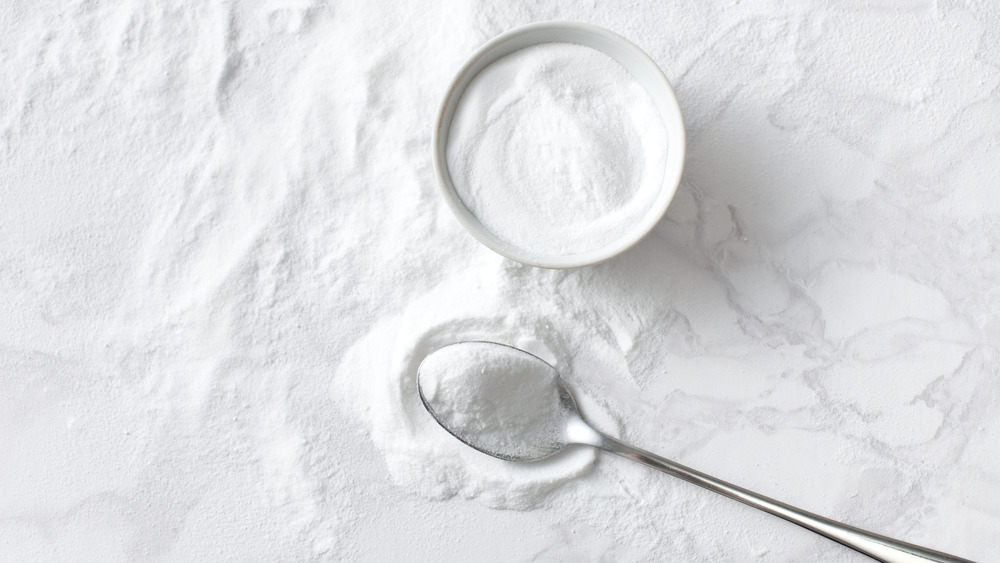Why You Should Be Adding Baking Soda To Your Sourdough
There is regular bread and then there is sourdough bread, which many would argue is truly in a league of its own. Made with fermented dough, it's a little bit sour, a little bit crusty, and 100 percent fluffy and irresistible (especially slathered in butter fresh out of the oven). The only downside to sourdough is that making it at home is trickier and more complex than other types of bread since it requires a "starter" that has to ferment for days before it is added to the dough.
But the lengthy process that comes along with making sourdough bread has not stopped many home chefs from trying their hand at baking the perfect loaf, especially in the midst of nationwide coronavirus lockdown restrictions. According to Google Trends, searches for bread and bread baking hit all-time highs earlier in 2020, as citizens were compelled to stay home more and more. If you want to join the trend, there is one key step you should never skip when making your sourdough: Always use baking soda.
It improves both the flavor and the texture
Baking soda serves two purposes when it comes to sourdough bread baking. First, it prevents your loaf from being too dense. Traditional Cooking School explains that the baking soda reacts with the acid in the starter to create a chemical reaction that causes your bread to puff up and rise. You do not need much, either — just a half to one teaspoon of baking soda will do the trick. Sprinkle it in before you shape your loaf.
A pinch of baking soda can also make your bread taste better by neutralizing some of the acid. In a way, it "sweetens" your bread, Cultures for Health says. Because baking soda is alkaline, so it balances out the acidity (which is what makes your bread taste more sour). If you stirred some of the hooch (aka the "brown liquid layer that forms") into your starter, adding some baking soda will help cut that acidic bite, leaving you with a loaf that is a little less tangy.

